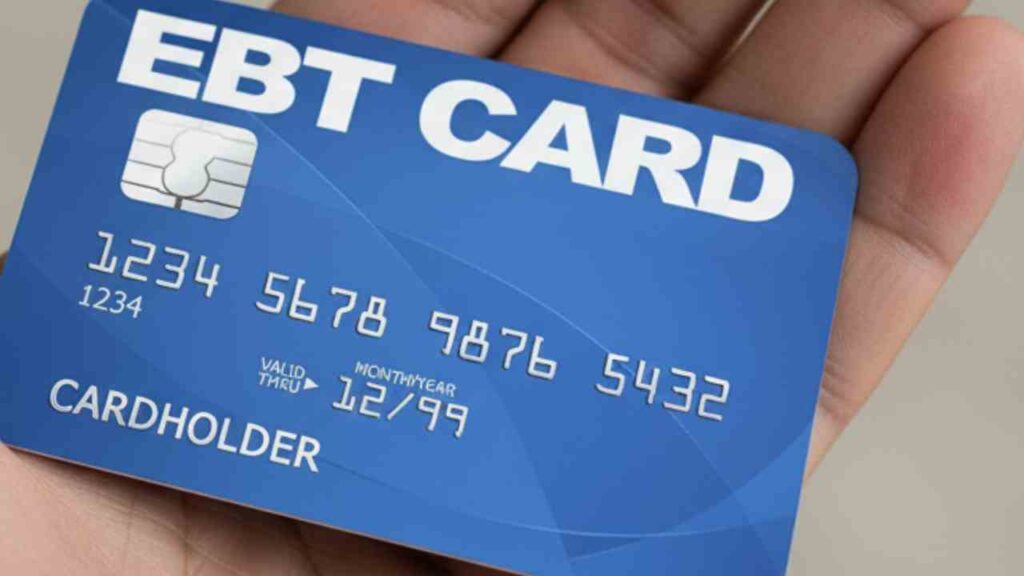The partial shutdown of the United States federal government, which began on October 1, 2025, remains in effect, creating growing uncertainty for the approximately 42 million beneficiaries of the Supplemental Nutrition Assistance Program (SNAP).
The continuity of this budget impasse, which extends beyond three weeks (and seems to be much longer), puts the November SNAP benefits at high risk. The ability to distribute these funds depends directly on congressional approval of an annual budget, a process that is currently stalled.
What’s about to happen to the SNAP benefits in November
State agencies and the U.S. Department of Agriculture (USDA) have issued statements warning of possible delays or suspensions in disbursements if the situation is not resolved by October 31, because the agencies depend on the federal budget, specially when it comes to a new Fiscal Year.
SNAP funding operates under an annual allocation mechanism, and the lack of a legislative agreement prevents the release of new funds. Although states administer the program, their ability to issue payments without federal financial support is extremely limited, if at all.
Payments for the month of October are guaranteed, as their distribution was processed prior to the start of the shutdown. All of these benefits were allocated and transferred to the states, allowing for their issuance according to the established schedule. This fact, however, contrasts sharply with the immediate outlook for next month, where the lack of new funds could create a funding black hole.
November SNAP payments: There might be no funds
The situation for November benefits is significantly different. The USDA has clearly indicated that there will not be enough funds to cover all benefits if the shutdown continues. “If the shutdown persists, the USDA has indicated that there will not be sufficient funds to pay all November benefits, which could result in full or partial interruptions in most states.”
This potential circumstance would affect the vast majority of states, many of which lack emergency budget reserves to make up for the shortfall in federal funds.
Some state governments have begun notifying their residents about the seriousness of the situation. States like South Carolina and Missouri have explicitly stated that, absent a federal agreement, they will not have the operational capacity to process or issue any SNAP payments for the month of November.
At the same time, the USDA has urged state agencies to maintain their administrative functions during the closure. This involves continuing to receive and process new applications for the program, as well as managing renewals for existing beneficiaries. However, this procedural work becomes inconsequential without the availability of funds to convert approvals into tangible benefits distributed to individuals.
SNAP payment dates in all states
Below is the list of scheduled SNAP benefit issuance dates for November 2025, based on standard state calendars (subject to changes due to the ongoing government shutdown).
Payments are typically issued in batches based on case number, last name, or beneficiary ID, and disbursed as a single monthly lump sum:
- Alabama: November 4–23
- Alaska: November 1
- Arizona: November 1–13
- Arkansas: November 4–13
- California: November 1–10
- Colorado: November 1–10
- Connecticut: November 1–3
- Delaware: November 2–23
- District of Columbia: November 1–10
- Florida: November 1–28
- Georgia: November 5–23
- Guam: November 1–10
- Hawaii: November 3–5
- Idaho: November 1–10
- Illinois: November 1–20
- Indiana: November 5–23
- Iowa: November 1–10
- Kansas: November 1–10
- Kentucky: November 1–19
- Louisiana: November 1–23
- Maine: November 10–14
- Maryland: November 4–23
- Massachusetts: November 1–14
- Michigan: November 3–21
- Minnesota: November 4–13
- Mississippi: November 4–21
- Missouri: November 1–22
- Montana: November 2–6
- Nebraska: November 1–5
- Nevada: November 1–10
- New Hampshire: November 5
- New Jersey: November 1–5
- New Mexico: November 1–20
- New York: November 1–9
- North Carolina: November 3–21
- North Dakota: November 1
- Ohio: November 2–20
- Oklahoma: November 1–10
- Oregon: November 1–9
- Pennsylvania: November 3–14
- Puerto Rico: November 4–22
- Rhode Island: November 1
- South Carolina: November 1–19
- South Dakota: November 10
- Tennessee: November 1–20
- Texas: November 1–28
- Utah: November 5, 11, and 15
- U.S. Virgin Islands: November 1
- Vermont: November 1
- Virginia: November 1–7
- Washington: November 1–20
- West Virginia: November 1–9
- Wisconsin: November 1–15
- Wyoming: November 1–4
Maximum food stamps in November
The food stamps maximum allotments, are defined by the fiscal year 2026 cost-of-living adjustments (COLAs), which took effect October 1, 2025. In the 48 contiguous states and the District of Columbia, the maximum monthly amounts vary by household size.
For a one-person household, the maximum is $298; for two people, $546; for three, $785; for four, $994; for five, $1,183; for six, $1,421; for seven, $1,571; and for eight, $1,789. For larger households, $218 is added per additional person.
These amounts represent the cap for households with no income, and actual benefits are calculated by subtracting 30% of the household’s net income from the applicable maximum.
The maximum allotments in high-cost states
In Alaska, the maximum SNAP benefits for November 2025 vary by area: for example, for a one-person household, $385 in urban areas, $491 in rural areas, and $598 in rural areas; for four people, $1,285, $1,639, and $1,995, respectively (the three areas defined, by different cost-of-living).
In Hawaii, they are $506 for one person and $1,689 for four. In the territory of Guam, $439 for one person and $1,465 for four; and in the U.S. Virgin Islands, $383 for one person and $1,278 for four. These maximum amounts depend on individual eligibility and could be impacted by the government shutdown; consult the USDA for individualized details.
